Microcomputer/FPGA controllers are an indispensable integral component of smartphones, engine control units, PCs, IoT (Internet of Things), ... . The understanding of microcomputers and the practical handling of hardware as well as hardware-related programming is an essential part of the bachelor/master education.
Goals and idea
Microcomputers and digital technology are an indispensable integral part of embedded systems. Examples are control units in vehicles, control systems for industrial plants and (home) automation technology, smartphones, PCs, IoT (Internet of Things), etc.
The understanding of microcomputers and digital technology and the practical handling of both electronics (hardware) and hardware-related programming (software) is an important part of our students' education. The laboratory is used for practical trainings in the subjects of microcomputer technology and digital technology, for student projects on these subjects and for working on bachelor and master theses.
Laboratory equipment and activities
The laboratory is equipped with 12 laboratory bench workstations. Each table has an evaluation board (experimental electronics assembly) for the microcomputer technology and digital technology practical courses. For the microcomputer technology an assembly with an ARM based microcontroller from STM and a graphic LCD with touch screen is used. For the digital technology an FPGA board from Altera is used.
A PC with two monitors per workstation is available to develop software for the evaluation boards.
The embedded programming of the microcontrollers in C is done with the MDK-ARM and µVision development environment from Keil. The hardware description language VHDL is used to develop the digital circuits and the development environment Quartus from Altera.
For the operation of the electronic components, fixed voltage and adjustable DC power supplies in the low voltage range are available for each table. A digital 4-channel oscilloscope and a logic analyzer are available for each desk to test and measure the function of the developed programs on signal level.
For protocol decoding of serial bus systems (e.g. I2C, SPI, LIN, CAN, FlexRay, ...) there are powerful oscilloscopes and analyzers available in the laboratory. A 128-channel logic analyzer can be used to analyze parallel bus systems in embedded systems.
The laboratory is mainly used for the practical basic training of students in digital technology and microcomputer technology.
The practical course in digital technology is obligatory for the study courses Electrical and Information Technology (EIT), Electrical Engineering and Electromobility (EMB) and Mechatronics (MT). The students work in groups of two on tasks concerning digital switching networks and switching mechanisms, which are programmed with VHDL or circuit diagram input. The program is synthesized by the development environment and loaded onto the evaluation board where it is tested.
The practical course in microcomputer technology is an integral part of the study courses EIT, EMB, MT as well as flight and vehicle informatics. In the course of a semester, each group develops software for the evaluation board, with which the most important functions of a controller are realized: Reading of sensor signals and control of actuators, display and operation via keyboard and touch display as well as communication with the other groups via a LIN bus network. The microcontroller is programmed in C, without an underlying operating system.
In the context of other courses of studies as well as the continuing education courses, the laboratory is used for laboratory exercises accompanying lectures. In addition, the laboratory is also used for student projects and bachelor and master theses.
Laboratory management and team
Prof. Dr. Ulrich Margull
Phone: +49 841 9348-4280
Room: A103
E-Mail: Ulrich.Margull@thi.de
Prof. Dr.-Ing. Georg Passig
Phone: +49 841 9348-4380
Room: A103
E-Mail: Georg.Passig@thi.de

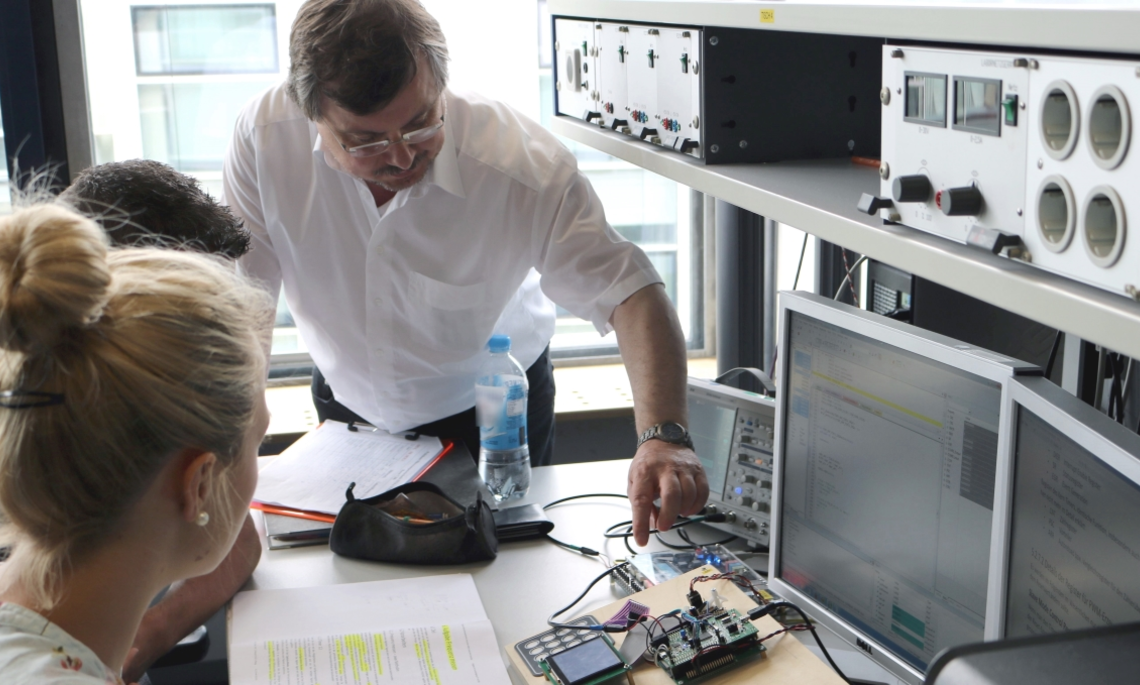
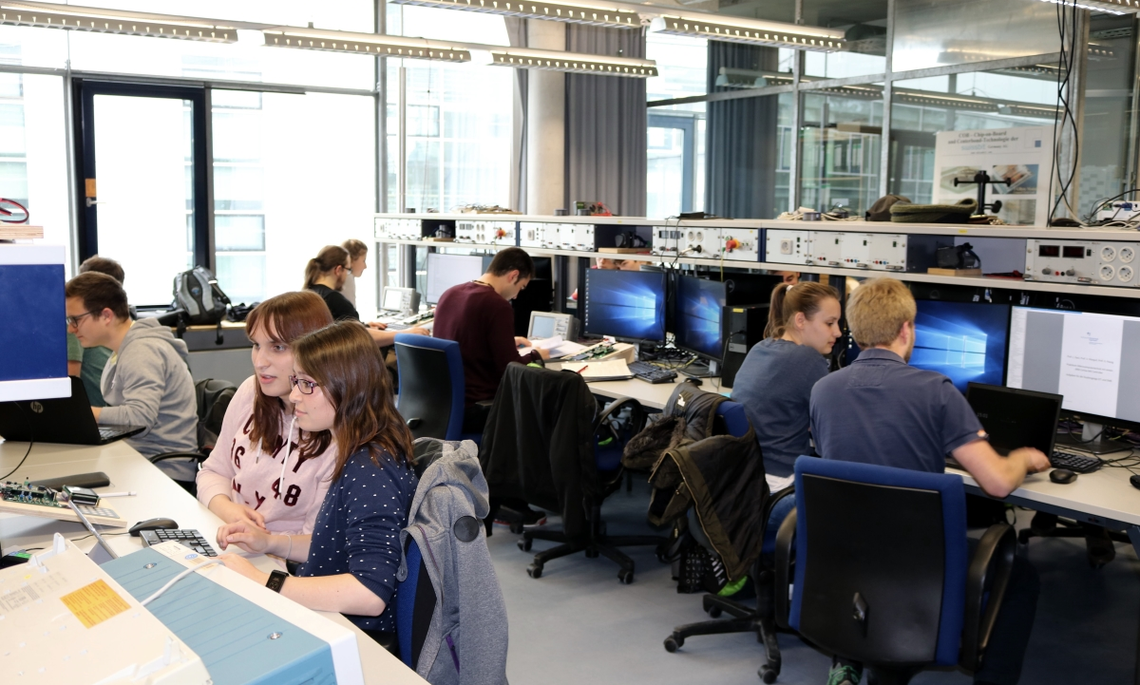
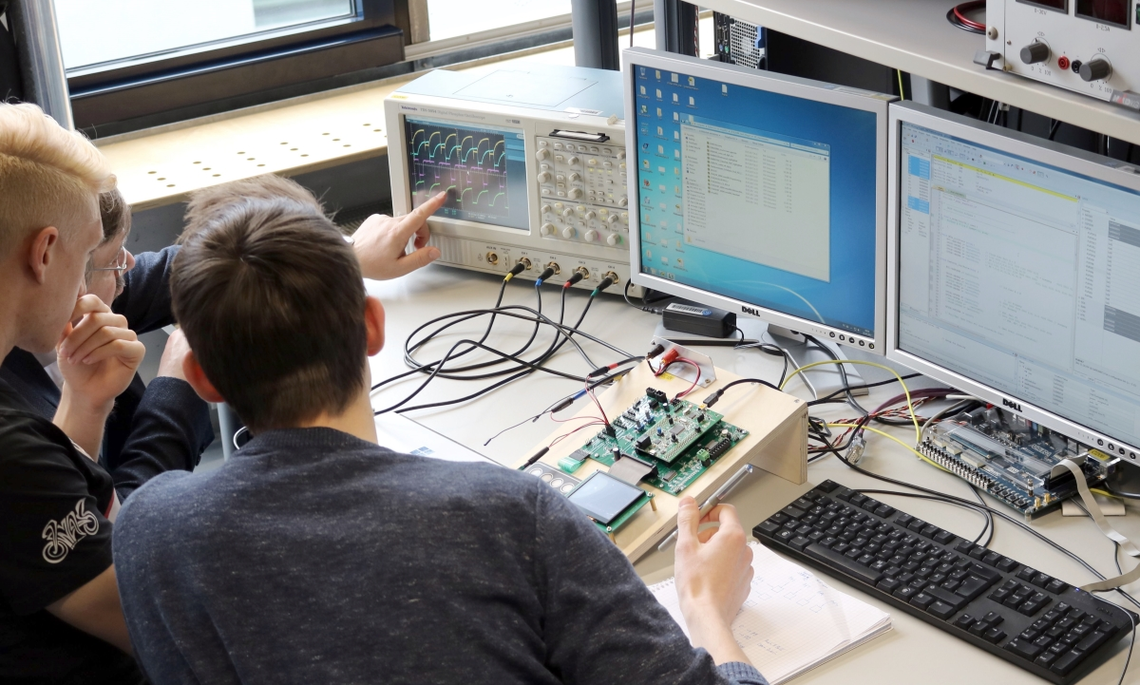

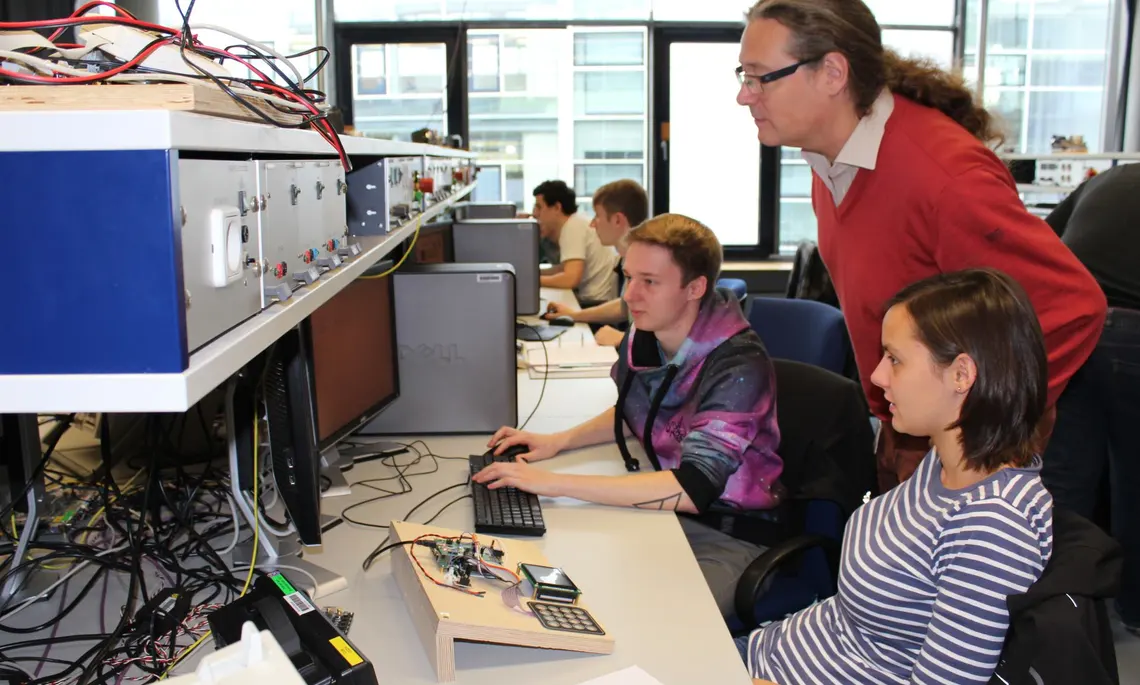
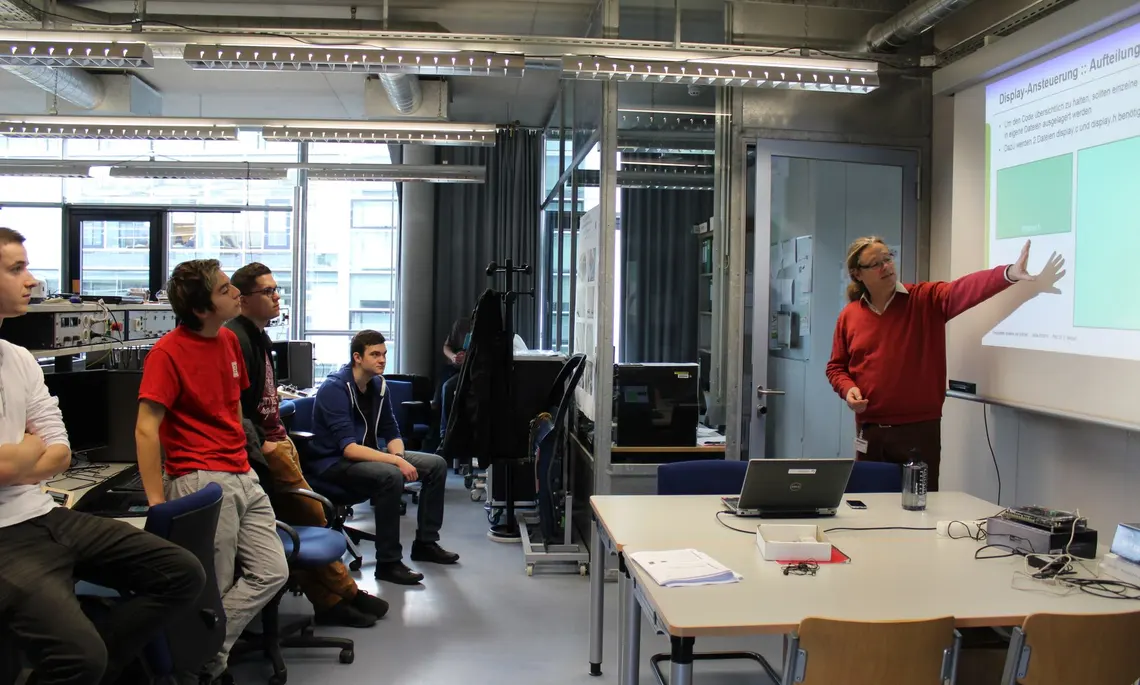



![[Translate to English:] Logo Akkreditierungsrat: Systemakkreditiert](/fileadmin/_processed_/2/8/csm_AR-Siegel_Systemakkreditierung_bc4ea3377d.webp)








![[Translate to English:] Logo IHK Ausbildungsbetrieb 2023](/fileadmin/_processed_/6/0/csm_IHK_Ausbildungsbetrieb_digital_2023_6850f47537.webp)


